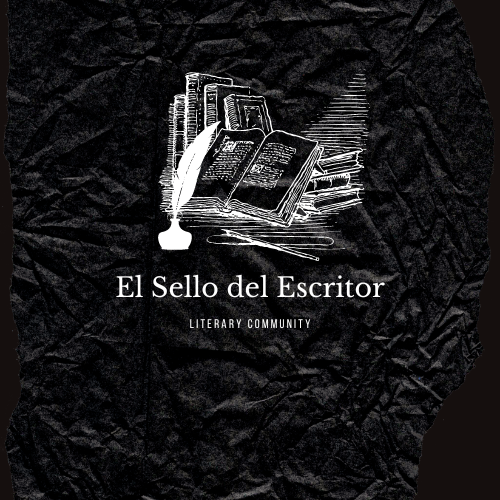Antes de empezar a redactar un texto, hay que preguntarse para qué, para quién, sobre qué y cómo va a ser dicho texto.
¿Para qué escribo?
Comencemos por la primera cuestión, ¿para qué escribo? La elección del asunto sobre el que se quiere hablar influirá de manera fundamental en las ideas que se van a desarrollar. Por ejemplo, si escribo para hacer una solicitud, o para requerir información acerca de un asunto de vital importancia para una investigación que llevo a cabo, aunque ambas son situaciones de demanda, el asunto en cuestión hará que el escrito tome una dirección u otra y se convierta en un texto determinado.
Esta etapa, a la que podríamos definir como de pre-redacción, depende en gran medida de la finalidad del texto. De manera muy genérica, las principales finalidades de una redacción son las siguientes:
Narrativa: relatar un hecho, una anécdota o un acontecimiento. Por ejemplo, contar lo que sucedió el día que conocimos a alguien.
Descriptiva: decir cómo es un animal, un paisaje, una persona, un pensamiento o una cosa, etc.
Expositiva: explicar o informar sobre determinado asunto; por ejemplo, redactar un informe sobre los efectos perjudiciales del consumo de bebidas alcohólicas.
Argumentativa o persuasiva: convencer o persuadir a alguien mediante razones o argumentos, por ejemplo, convencer a un amigo para hacer un viaje juntos.
¿Para quién escribo?

Al redactar es importante pensar en el lector o lectores a quienes va dirigido el texto, ya que influirá de manera decisiva en el lenguaje utilizado. Los destinatarios serán diferentes en función de la edad o el grupo social al que pertenezcan, o de sus intereses, cultura o sentimientos. Por ejemplo, si se escribe sobre el tema “La inseguridad en las carreteras”, la redacción será distinta según vaya dirigida a los fabricantes de autos, a las compañías de seguros o a los familiares de fallecidos en accidentes de tráfico.
¿Sobre qué escribo?
Aquí nos enfrentamos a la cuestión del tema y es necesario distinguir entre tema general y tema específico.
El tema general abarca un área extensa del saber o el pensamiento. Por ejemplo, temas como la música, los automóviles, el deporte o la industria farmacéutica son temas generales. En cambio el jazz, el baloncesto o nuevos medicamentos para el Alzheimer serían temas específicos correspondientes a los mencionados temas generales.
Es obvio que el espacio del que se dispone es otro factor importante que el escritor deberá saber de antemano, ya que desarrollar un tema específico en una o dos páginas será muy diferente a hacerlo en ocho, diez o más páginas.
¿Cómo voy a escribir?
Una vez elegido el tema general o el tema específico, se puede recurrir a técnicas de gran utilidad para la primera etapa de la generación de ideas.
De esto hablaremos en la siguiente publicación.
COMMUNICATION: Why do I write? Who do you write for? What do I write about? How am I going to write?
Before starting to write a text, you have to ask yourself why, for whom, about what and how the text is going to be.
What do I write for?
Let’s start with the first question, why do I write? The choice of the topic you want to talk about will fundamentally influence the ideas that are going to be developed. For example, if I write to make a request, or to request information about a matter of vital importance for an investigation I am carrying out, although both are demand situations, the matter in question will cause the writing to take one direction or another and becomes a specific text.
This stage, which we could define as pre-writing, depends largely on the purpose of the text. In a very generic way, the main purposes of an essay are the following:
Narrative: recounting a fact, an anecdote or an event. For example, telling what happened the day we met someone.
Descriptive: saying what an animal, a landscape, a person, a thought or a thing is like, etc.
Expository: explain or report on a certain matter; for example, writing a report on the harmful effects of consuming alcoholic beverages.
Argumentative or persuasive: convince or persuade someone through reasons or arguments, for example, convincing a friend to take a trip together.
Who do I write for?

When writing it is important to think about the reader or readers to whom the text is directed, since it will decisively influence the language used. The recipients will be different depending on the age or social group to which they belong, or their interests, culture or feelings. For example, if you write about the topic “Unsafety on the roads”, the wording will be different depending on whether it is addressed to car manufacturers, insurance companies or relatives of those killed in traffic accidents.
What do I write about?
Here we are faced with the question of topic and it is necessary to distinguish between general topic and specific topic.
The general theme covers a large area of knowledge or thought. For example, topics such as music, cars, sports or the pharmaceutical industry are general topics. On the other hand, jazz, basketball or new medications for Alzheimer’s would be specific topics corresponding to the aforementioned general topics.
It is obvious that the space available is another important factor that the writer must know in advance, since developing a specific topic in one or two pages will be very different from doing it in eight, ten or more pages.
How am I going to write?
Once you have chosen the general topic or the specific topic, you can use very useful techniques for the first stage of idea generation.
We will talk about this in the next post.

